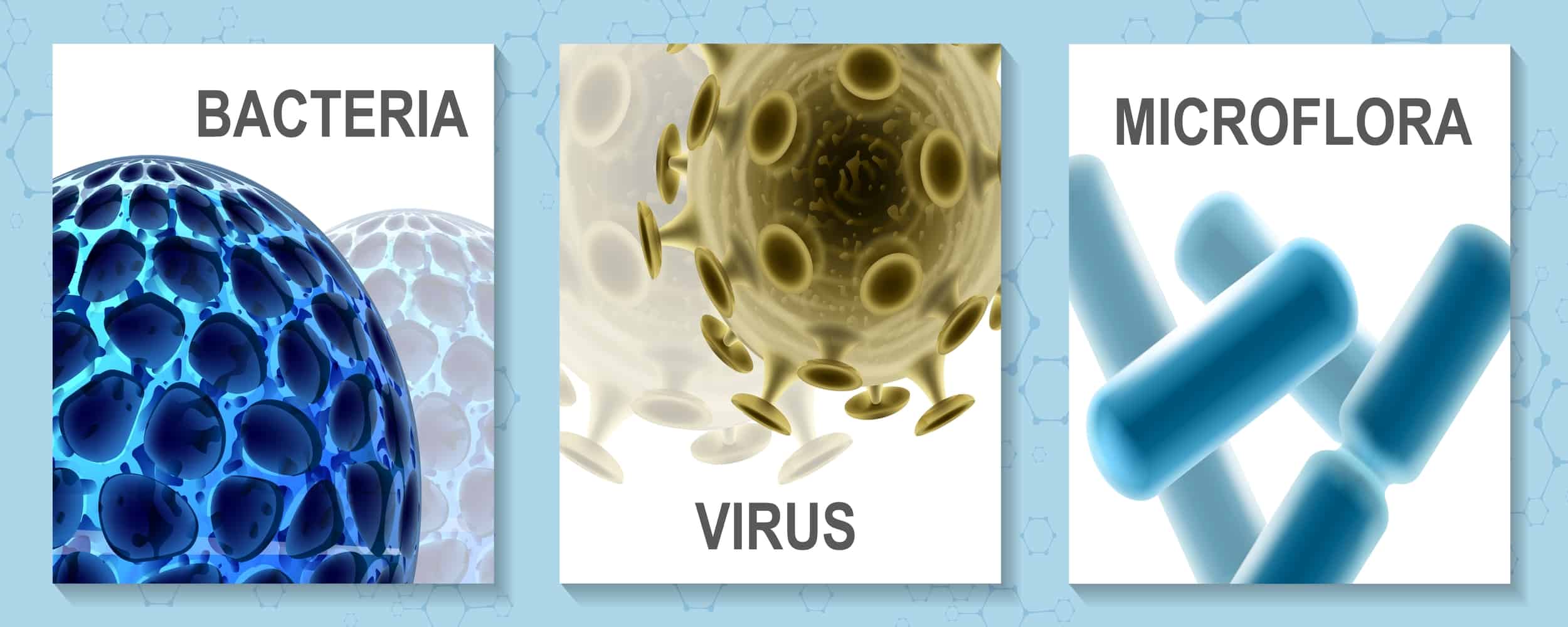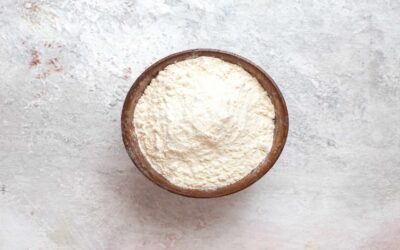WHAT IS APPLE CIDER VINEGAR (ACV) ?
Apple cider vinegar, ACV , is a well-known home remedy. People often use it in cooking and natural medicine. It is mostly apple juice, but producers perform the process of fermentation by adding in yeast. This turns the sugar in the juice into alcohol. Bacteria then convert the alcohol into acetic acid. Ultimately, the mixture becomes apple cider vinegar which gives a strong smell and sour taste.
Apple cider vinegar contains water, 5%-6% of acetic acid (the main active component in ACV) and other small amount of acids.
Apple cider vinegar is actually a nutritional powerhouse. In one tablespoon (15ml) of ACV, there is about 3 calories of nutrient. Moreover, it also contains magnesium, manganese, phosphorus, iron, antioxidants and amino acids.
HEALTH BENEFITS OF APPLE CIDER VINEGAR
Apple cider vinegar has numerous healthful properties. It also provides substantial health benefits, as explained below.
1. Kills Harmful Bacteria & Fungi

The main active ingredient in apple cider vinegar is acetic acid which helps kill harmful bacteria and fungi. In fact, people have traditionally used vinegar for disinfecting wounds and treating fungus. It was and still is a great way to kill bacteria and prevent infections. In a study, it showed that the use of vinegar reduced certain bacteria by 90% and some viruses by 95%, proving its effectiveness in killing and fighting harmful bacteria and viruses.
Besides, apple cider vinegar is often used as a food preservative. Studies show that ACV hinders bacteria like E.coli from spoiling food. In view of that, in order to preserve your food, apple cider vinegar is a natural and better alternative than artificial preservatives.
2. Manages Diabetes by Lowering Blood Sugar Level
High blood sugar level is one of the major causes of various chronic diseases such as Type 2 diabetes. Type 2 diabetes is caused by the body’s inability to produce and use insulin properly, resulting in unusual blood sugar levels.
To date, apple cider vinegar is often suggested as a natural method to control blood sugar level. Studies reveal that apple cider vinegar taken before a high-carb meal reduces blood sugar spike after meal and improves insulin response by 19%-34%, thereby lowering blood sugar level.
Interestingly, just four teaspoons (20ml) of ACV before meals is found to be effective already. Remember to mix with a few ounces of water and consume it immediately before your high-carb meal to achieve the effects. If taken before a low-carb or high-fiber meal instead, a study concludes that apple cider vinegar does not significantly lower blood sugar level in these cases.
Apple cider vinegar might be beneficial in regulating blood sugar level. Yet, it is important to note that never replace medications with health products. Always check with your doctor or healthcare advisor before consuming any type of vinegar or health products.
3. Improves Cholesterol & Triglyceride Levels
Another benefit of apple cider vinegar is that it helps lower cholesterol and triglyceride levels. A study was carried out in 2018 for 3 months to examine the impact of a low-calorie diet and apple cider vinegar.
Researchers eventually found that the total cholesterol level significantly decreased whereas the HDL-C (good cholesterol) level significantly increased among the participants. Their plasma triglyceride concentration also reduced greatly. This suggest that ACV can somehow improve blood triglycerides and cholesterol.
4. Enhances Skin Health
Apple cider vinegar is a remedy commonly used to improve skin appearance. By applying topical apple cider vinegar, it helps re-balance the natural pH level of the skin, thereby improving our skin protection barrier.
Moreover, with its antibacterial properties, ACV also helps prevent skin infections. Some people even use diluted apple cider vinegar in their face-wash to reduce the prevalence of acne and prevent spots.
It is always recommended to apply diluted apple cider vinegar if needed as undiluted apple cider vinegar causes burns and skin irritation. Make sure to consult your healthcare provider before applying ACV, especially when you have a dry, sensitive or even damaged skin.
These are the four main benefits of apple cider vinegar. Apart from these, advocates of ACV also claim that consuming apple cider vinegar reduces the risk of cancer and heart related diseases. However, there is little scientific evidence supporting this claim as no research studies conducted on humans have comprehensively address these claims yet.
Besides, enthusiasts of apple cider vinegar also take one to two tablespoons (15-30 ml) of ACV before their protein-heavy meals to increase the acidity of the stomach in hope to aid digestion. However, there is no research that supports the use of vinegar helps facilitate digestion.
QUESTION : DOES APPLE CIDER VINEGAR AID WEIGHT LOSS ?

Apple Cider Vinegar Increases Satiety
This Leads to Lower Calorie Intake
Consuming apple cider vinegar actually helps increase your feeling of fullness which leads to fewer calorie intake throughout the day and lose weight eventually. Few research studies have been carried out that support this claim.
In one study, participants took apple cider vinegar with high-carb meal. They ended up eating around 200-275 fewer calories in the rest of the day. Besides, another small study evaluating the effect of apple cider vinegar on glucose and insulin response showed that consuming ACV with a starchy meal significantly slowed down stomach emptying. This resulted in increased satiety and lowered blood sugar and insulin response level among the participants.
Apple cider vinegar is weight loss friendly. It promotes fullness and thereby reduces the amount of food and calories consumed throughout the day. However, it is worth to note that it might worsen gastroparesis for some people as ACV extends the time food stays in your stomach.
Apple Cider Vinegar Lowers Body Fat Percentage
This Helps Reduce Belly Fat
Apple cider vinegar also has an impressive effect on reducing body fat. A 3-month study was conducted among obese Japanese. Those who consumed 2 tablespoons of ACV daily (30ml) throughout the study resulted in 3.7 pounds (1.7kg) of weight loss, 0.9% decrease in their body fat percentage, 0.75in (1.9cm) decrease in waist circumference as well as 26% decrease in triglycerides.
It is also found that taking 2 tablespoons of ACV each day proved to be effective in helping dieters lose twice as much weight in 3 months compared to people who did not take ACV.
Apple cider vinegar does contribute to weight loss. It is suggested to drink diluted apple cider vinegar before meals and combine with other lifestyle and diet changes such as doing exercise to aid weight loss and achieve optimal result.
SIDE EFFECTS OF APPLE CIDER VINEGAR
Apple cider vinegar is generally safe. However, it may cause side effects in some people. Consuming too much can also be dangerous. Here is a list of the potential side effects of ACV:
Causes Stomach Upset
It is mentioned that apple cider vinegar helps prevent blood sugar spike by delaying stomach emptiness. However, as food leaves the stomach at a slower rate, this might worsen gastroparesis symptoms such as heartburn or nausea.
Moreover, people with type 1 diabetes may also find it difficult and challenging to control their blood sugar level as it is hard to predict when the food will be absorbed and digested.
Consuming apple cider vinegar might also reduce appetite and cause indigestion. Furthermore, you may experience uncomfortable effects like nausea, reflux or burping. In these cases, stop taking apple cider vinegar and consult your medical profession immediately.
Erodes Tooth Enamel
Studies show that acidic foods and drinks tend to damage tooth enamel. A research study was carried out to evaluate the effect of vinegars on human enamel. Result showed that vinegars led to a 1%-20% of mineral loss from the wisdom teeth after 4 hours.
In actual, consuming a great amount of vinegar may cause tooth enamel erosion. Therefore, it’s best to drink apple cider vinegar with a straw or to rinse your mouth with water afterwards to prevent and minimize this side effect.
Causes Skin Burn
Apple cider vinegar has acidic properties which may cause skin burns and irritation when applied, especially when it is undiluted.
Severe cases have been reported at National Capital Poison Center regarding serious burns that required medical treatment after applying vinegar on the skin. As such, always try to dilute the ACV with water and reduce the amount of time applied on skin to lower the risk of skin burns.

HOW TO USE OR DRINK APPLE CIDER VINEGAR ?
Honestly speaking, if you don’t like the taste of apple cider vinegar, it is definitely okay not to drink it. There are tons of other ways that you can incorporate apple cider vinegar into your diet. The best way is of course to use it in cooking. You can simply add to your salad dressing or homemade mayonnaise.
Some people also like to add in water and drink it that way. It is recommended to start with small doses, spread out into 2-3 doses per day and consume before meals.
If you would like to lose weight, try taking 1-2 tablespoons (15-30ml) of diluted apple cider vinegar per day, together with a healthy diet and exercise, it should do the trick! Remember not to consume more than 1 tablespoon (15ml) of ACV at a time, or else you may suffer from nausea due to over-consumption.
KEY TAKEAWAYS
Apple cider vinegar is a popular home remedy and consuming it has become the talk of the town. Some research studies support that drinking apple cider vinegar has exceptional health benefits. It helps reduce cholesterol and blood sugar levels, aid weight loss, kill bacteria as well as enhance skin health.
Apple cider vinegar appears to be safe to consume, however, it may cause skin burn, digestive issues and damage the teeth.
It is advised to always drink diluted apple cider vinegar and don’t consume excessive amount at a time. A common dose is 1-2 tablespoons (15-30ml) per day taken before meals. You may also add small amount of apple cider vinegar to your salad dressing.
People with chronic diseases or are taking medication should always consult their medical advisor before consuming apple cider vinegar. If you experience any uncomfortable symptoms like nausea, reflux or burping, stop taking ACV immediately and reach out to your doctor at first place.
Always remember: Your Health. Your Life. Your Priority. Take crucial steps today to live a healthy and balanced life!
Article Sources
HealthxTips is committed to delivering content that adheres to highest standard for accuracy, sourcing and objective analysis.
HealthxTips uses only high-quality and trustworthy sources to support the facts in our articles.
1. Entani, E., Asai, M., Tsujihata, S., Tsukamoto, Y., & Ohta, M. (1998). Antibacterial action of vinegar against food-borne pathogenic bacteria including Escherichia coli O157:H7. Journal of food protection, 61(8), 953–959. https://doi.org/10.4315/0362-028x-61.8.953
2. Johnston, C. S., & Buller, A. J. (2005). Vinegar and peanut products as complementary foods to reduce postprandial glycemia. Journal of the American Dietetic Association, 105(12), 1939–1942. https://doi.org/10.1016/j.jada.2005.07.012
3. Johnston, C. S., Steplewska, I., Long, C. A., Harris, L. N., & Ryals, R. H. (2010). Examination of the antiglycemic properties of vinegar in healthy adults. Annals of nutrition & metabolism, 56(1), 74–79. https://doi.org/10.1159/000272133
4. Kondo, T., Kishi, M., Fushimi, T., Ugajin, S., & Kaga, T. (2009). Vinegar intake reduces body weight, body fat mass, and serum triglyceride levels in obese Japanese subjects. Bioscience, biotechnology, and biochemistry, 73(8), 1837–1843. https://doi.org/10.1271/bbb.90231
5. Liljeberg, H., & Björck, I. (1998). Delayed gastric emptying rate may explain improved glycaemia in healthy subjects to a starchy meal with added vinegar. European journal of clinical nutrition, 52(5), 368–371. https://doi.org/10.1038/sj.ejcn.1600572
6. Liatis, S., Grammatikou, S., Poulia, K. A., Perrea, D., Makrilakis, K., Diakoumopoulou, E., & Katsilambros, N. (2010). Vinegar reduces postprandial hyperglycaemia in patients with type II diabetes when added to a high, but not to a low, glycaemic index meal. European journal of clinical nutrition, 64(7), 727–732. https://doi.org/10.1038/ejcn.2010.89
7. Lukasik, J., Bradley, M. L., Scott, T. M., Dea, M., Koo, A., Hsu, W. Y., Bartz, J. A., & Farrah, S. R. (2003). Reduction of poliovirus 1, bacteriophages, Salmonella montevideo, and Escherichia coli O157:H7 on strawberries by physical and disinfectant washes. Journal of food protection, 66(2), 188–193. https://doi.org/10.4315/0362-028x-66.2.188
8. Ostman, E., Granfeldt, Y., Persson, L., & Björck, I. (2005). Vinegar supplementation lowers glucose and insulin responses and increases satiety after a bread meal in healthy subjects. European journal of clinical nutrition, 59(9), 983–988. https://doi.org/10.1038/sj.ejcn.1602197
9. Petsiou, E. I., Mitrou, P. I., Raptis, S. A., & Dimitriadis, G. D. (2014). Effect and mechanisms of action of vinegar on glucose metabolism, lipid profile, and body weight. Nutrition reviews, 72(10), 651–661. https://doi.org/10.1111/nure.12125
10. Willershausen, I., Weyer, V., Schulte, D., Lampe, F., Buhre, S., & Willershausen, B. (2014). In vitro study on dental erosion caused by different vinegar varieties using an electron microprobe. Clinical laboratory, 60(5), 783–790. https://doi.org/10.7754/clin.lab.2013.130528
11. Zero, D. T., & Lussi, A. (2005). Erosion–chemical and biological factors of importance to the dental practitioner. International dental journal, 55(4 Suppl 1), 285–290. https://doi.org/10.1111/j.1875-595x.2005.tb00066.x








0 Comments